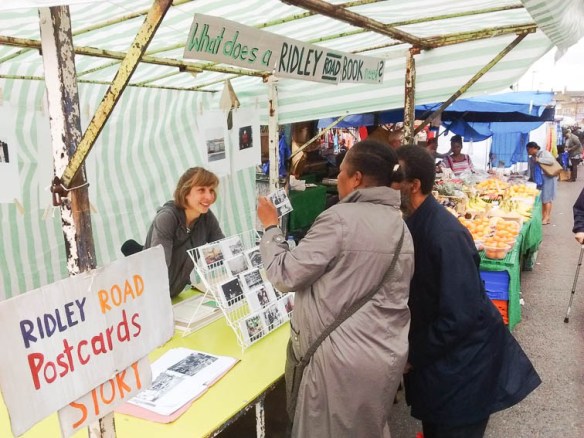
https://ridleyroadpostcards.wordpress.com/
What does a Ridley Road Book need?
Any suggestions, thoughts or stories are much appreciated.
Tamara Stoll is working on a book about Ridley Road market and is seeking contributions. See the link above for more information and contact details.
From my perspective this kind of “history from below” of working class areas is radical in itself, but Ridley Road also has a history of more explicitly radical activity…
From the 43 Group physically attacking Oswald Moseley’s British Union of Fascists in the 1940s, to paper sales by everyone from Hackney Communist Party to the Black Unity and Freedom Party – as well as the multicultural essence of the market simply helping cohesion in working class communities:
What was different about Dalston? Because of Ridley Road Market, which had a lot of West Indian stall-holders and customers, most of the pubs there did not operate a Colour Bar. So it had this strong effect. Partly because of Ridley Road and so on. It was because Dalston was a centre of Caribbean life, because of the market, but also because the pubs there were much more tolerant. And I don’t think people have given enough credence to how institutions like pubs and bars structure the geography of a place. So much as something like an informal Colour Bar that pushed West Indians towards and around Ridley Road, and the pubs around there. Dalston pubs were much more tolerant.
(Excerpt from a Ken Worpole interview courtesy of Hackney Archives.
Anyone with stories or memories of Ridley Road is welcome to contact Tamara.

I was born at eighty five Ridley rd in nineteen forty five , the best years of my life , my mum was a Miller from Dalston , my dad was a Frasi of Italian origin from Hoxton , happy days !